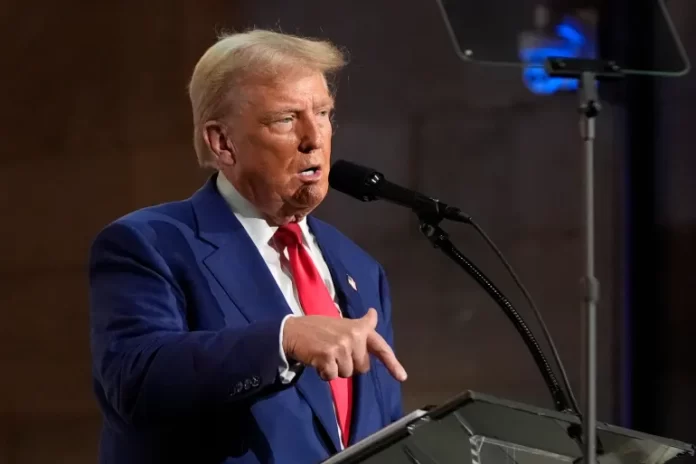A recent report warns that former U.S. President Donald Trump’s proposed tax reforms and tariffs could pose significant challenges to Nigeria’s economy, particularly its banking sector and foreign direct investment (FDI).
Trump’s plan to reduce the U.S. corporate tax rate from 21% to 15% is raising concerns about a potential repeat of the economic fallout seen after his 2017 Tax Cuts and Jobs Act. This policy led to a repatriation of $777 billion by U.S. firms, which contributed to a steep decline in Nigeria’s FDI, dropping from $4.65 billion in 2017 to $2.23 billion in 2018.
According to Business Day, the combination of reduced taxes and increased tariffs could disrupt key Nigerian industries, such as oil and agriculture, which heavily depend on international trade and foreign financial support.
The Nigerian banking sector, already grappling with liquidity challenges, could face reduced capital inflows and increased risks. However, experts suggest that banks may be able to adapt by offering diversified financial products and tapping into Africa’s growing economic influence.
Abayomi Fashina, a finance and tax expert, emphasized that Nigerian banks could still prosper by offering tax-efficient financial products and actively diversifying their portfolios. He stressed that success would depend on banks’ ability to remain agile, manage risks effectively, and seize new opportunities created by these policy changes.
Fashina further highlighted that Nigerian banks could play a critical role in navigating the evolving global economic landscape, positioning themselves to meet the needs of U.S. companies seeking diversification in Africa.
